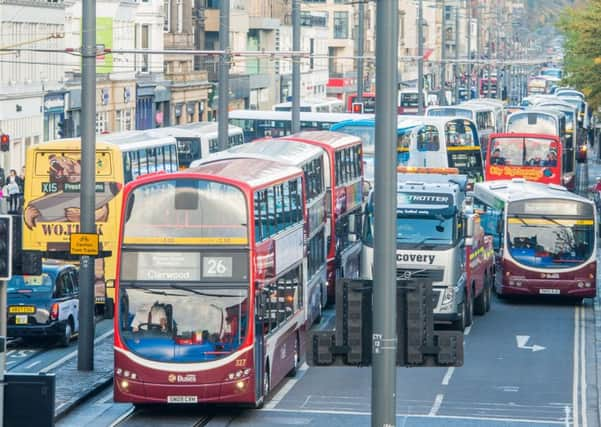Should Scotland’s bus services be regulated?


The majority of services in Scotland are operated on a commercial basis by private bus companies, but there are those who believe that control should be returned to local authorities.
Patricia Ferguson, Labour MSP for Maryhill and Springburn, raised the issue in the Scottish Parliament yesterday.
Advertisement
Hide AdAdvertisement
Hide Ad“I am sure that I am not the only constituency or list MSP whose communities have been blighted over the years by the relatively fast withdrawal of bus services from local communities, including most recently the M3 and 10 buses in my constituency,” she said.
“It seems to me that transport authorities are also hidebound in this regard, because their current guidance means that they have no opportunity to intervene when there is another or a similar service operating in the area, which is the case with the two services that I mentioned.”
She called on transport minister Derek McKay to give communities greater say in how bus provision was decided.
Mr McKay said the Government had no plans for wholesale re-regulation but added he wanted to see closer partnership between operators and transport authorities.
Bus fares and routes are currently a matter for individual operators who use their own commercial judgement as to the fare structure to be applied, taking into account the level of patronage, in order to provide a viable service. Transport Scotland provides an annual subsidy of £66.5 million to the bus industry, the aim of which is to keep fares at affordable levels and enable bus operators to run services that might not otherwise be commercially viable.
Bus provision was deregulated by Margaret Thatcher’s Conservative Government in 1985, allowing different firms to compete with each other on individual routes and ending monopolies.
Lothian Buses, the dominant provider of services in Edinburgh and across the Lothians, is owned wholly by the several local authorities in which it operates.
It has maintained a flat-fare system since 2006.
This is in contrast with Glasgow, where the majority of services are provided by the private First group.
Advertisement
Hide AdAdvertisement
Hide AdMoves to bring buses back under local control are already progressing in north-east England following an agreement between councils earlier this year.
Local authorities would take control of routes and timetabling and contract services to private companies.
It is hoped the scheme will be launched in 2017.
A spokesman for the Confederation of Passenger Transport (CPT), which represents bus and coach firms, said: “Further regulation of bus services would lead to increased bus fares and higher bills for taxpayers across Scotland. CPT strongly believes that the best way to further improve bus services for passengers in Scotland is by closer partnership working between operators and local authorities.
“Local government has a vital role to play in helping deliver better bus services by tackling the issue of traffic congestion in our towns and cities, freeing up road space to maximise the environmental and economic benefits that the bus can bring.
“Local bus fares in Scotland are lower than the UK average and the most recent survey by consumer group Transport Focus found that around nine out of 10 of bus customers surveyed in Scotland were satisfied with bus services. Scotland’s bus industry is working hard to deliver for Scotland’s passengers and will continue to do so.”